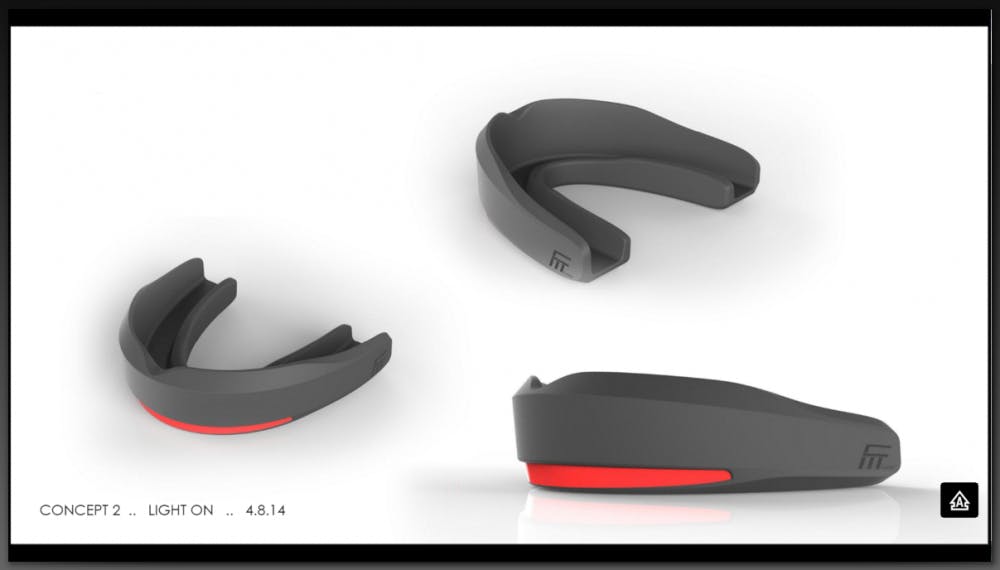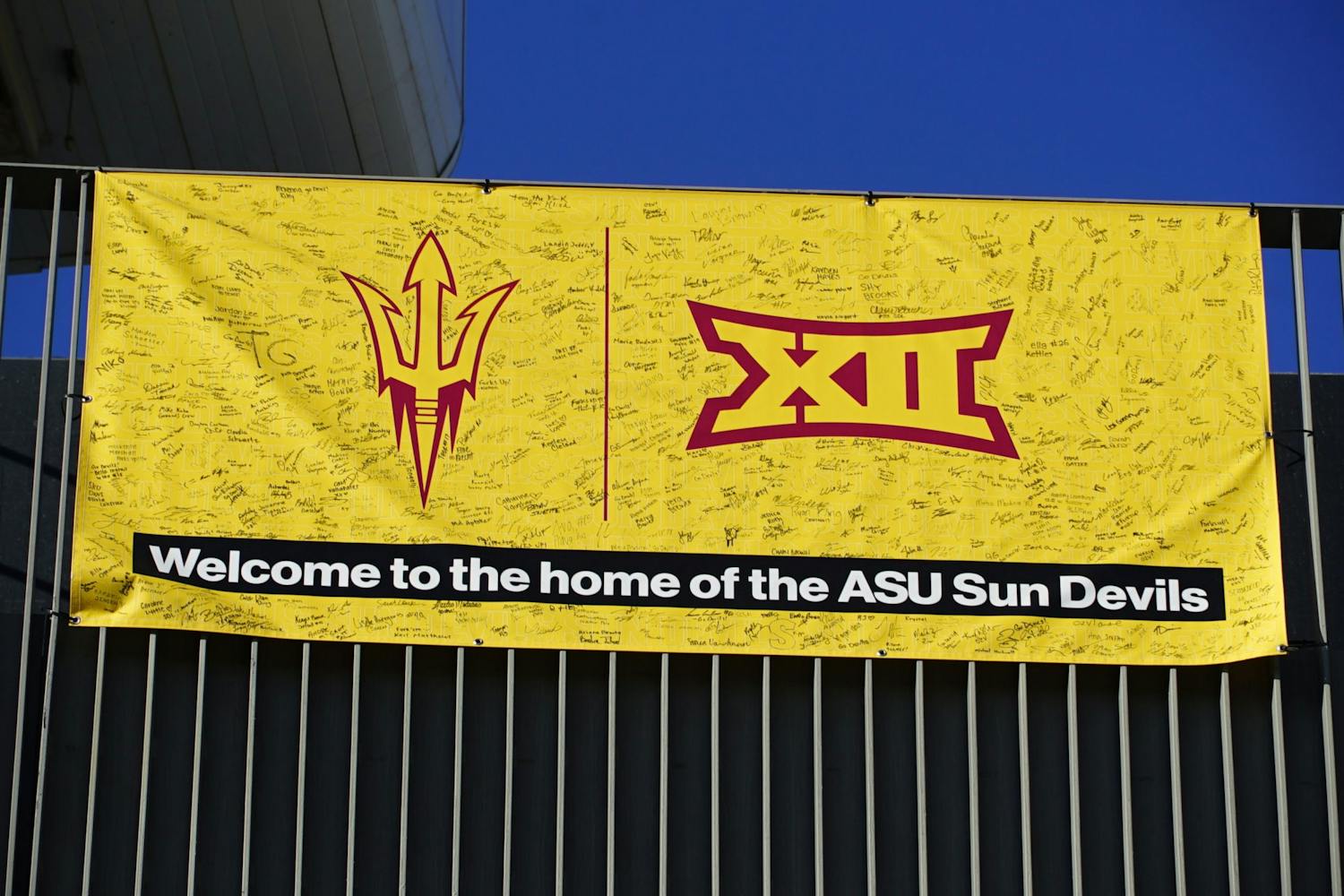Two ASU alumni, working at the same electronics company, were goofing off at work one day. They were testing LED-tech components to see how much force would cause a light to turn on.
The co-workers, Anthony Gonzales and Bob Merriman, have known each other for six years, first meeting at Brazilian Jiu-Jitsu courses. They have both been athletes for much of their lives, with Gonzales playing rugby for ASU during his college years.
This round of averting work, quickly turned into a conversation about concussions and how they could make these items into a practical product that would help athletes.
Thus Force Impact Technologies was born, along with its flagship product Fitguard.
Merriman says that Gonzales, who was working in sales, sold a lot of the parts that they would eventually use for Fitguard at the company. This helped them develop Fitguard.
Fitguard is an early warning system for concussions that has been fitted inside of a mouth-guard for athletes of all ages and sizes.
The Fitguard measures the acceleration an athlete undergoes when they’re hit, Gonzales says. When an athlete has the Fitguard on, the force they were hit with moves both the Fitguard and their brain at the same speed, Merriman says.
There are two devices that measure the acceleration of the Fitguard. One is a gyroscope, which measures the rotation of the mouth-guard. The other is an accelerator, which measures how much force was applied to the guard, Merriman says. These two measurements are read and then they determine how hard the hit was based on the user’s weight, age, height and any other determining factors, Gonzales says.
Depending on the hit, lights within the mouth guard will change colors based on the severity of the impact, Gonzales says. There is also an accompanying mobile device that parents of an athlete or the athlete themselves can look over after the hit. The app will allow the user to keep a database and report their own symptoms, according to their website.
“We’re (Fitguard) the brain's 'Check engine light',” Gonzales says. “We’re not telling you what’s wrong exactly. We’re telling you something may be wrong and you should be checked by a professional.”
The Fitguard doesn’t tell the wearer that they have a concussion, Gonzales says, it just says that an athlete has been hit at a certain threshold and the Fitguard tells them that they should be checked out. Parents will be able to review the information that the Fitguard measures from their mobile device.
The mission of Fitguard is to increase both the parents’ and athlete’s awareness of concussions, Merriman says. Awareness about concussions is important. Athletes may not be aware that they have a concussion and they may still want to continue playing after a hard hit.
Concussions can be elusive.
Journalism sophomore Madison Rowbotham received a concussion in a motor quad accident and didn’t know that she had one until a couple of days later.
“I blacked out for a couple of seconds,” Rowbotham says. “And thought it was only from the force of the crash.” Rowbotham says that a day later she started getting headaches and felt dizzy so she decided to go to a doctor where she found out that she had a concussion.
Prior to her accident, Rowbotham knew very little about concussions but now she says she is very aware of them.
Gonzales went through one such scenario when he was playing ASU Rugby. He says that he was hit hard while playing rugby, but didn’t feel any of the symptoms of a concussion. He still wanted to play, but a teammate saw some very hard-to-detect, early signs of a concussion and advised that he did not play, Gonzales says. He then got checked by a doctor and saw that he did have a concussion. This experience taught Gonzales just how important concussion prevention is to an athlete.
For people between ages 15 to 24, sports are second to vehicle crashes as the top cause of traumatic brain injuries, which are predominantly concussions, according to a study done in 2007 by the Journal of Athletic Training, found on the National Center for Biotechnology Information’s website.
The Fitguard still has a long road ahead before it is ready to be sold, Gonzales says. But, he has committed all of his efforts to the Fitguard after leaving his previous job.
Gonzales is now up for Collegiate Entrepreneur of the Year in Entrepreneur Magazine. There are four other finalists vying for the title along with Gonzales and his product FitGuard. Gonzales and Merriman have presented Fitguard for many grants and competitions. One of their first victories was ASU’s EIG Business Pitch Competition where they won $5,000.
They’ve been working on Fitguard for 18 months to make it into a product, Gonzales says. Soon they hope to begin selling it to young athletes and create a warning system for them during play.
Reach the writer at jamillar@asu.edu or via Twitter @jesse_millard.





